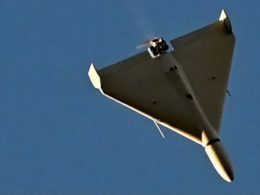Approximately 6.4 million tons of wheat and nearly 1.5 million tons of sunflower seeds were harvested in Russian-occupied Ukrainian territories this year, the recent data from NASA’s food security and agriculture program reveals.
The report highlights the difficulty in accurately assessing the real volume of crops grown on the occupied lands, a challenge exacerbated by the ongoing war. While some of these crops are consumed locally, others are transported to Russia or mixed with Russian grain and sold on the global market.
NASA researchers have nearly confirmed the grain volumes reported stolen by Russia, as previously detailed in an investigation by Texty media outlet. NASA Harvest’s estimated volume of nearly 8 million tons, though not sufficient to alter the global balance, is significant and not accounted for in industry reports used by traders to assess supply and export, potentially impacting market prices.
Texty: Russia made over $ 5 bn on stolen harvest in occupied Ukraine
Inbal Becker-Reshef, director of the NASA Harvest program, emphasized the importance of this information being open and transparent and reflecting the amount of food currently being harvested and produced.
The valuation of these crops and the associated damages is crucial for any reparations Ukraine might seek from Russia. Although NASA’s research does not indicate how much grain from the occupied territories is exported, it helps identify the amount that could be mixed with Russian shipments to the Middle East and Africa.
Furthermore, the NASA Harvest study shows that about 7% of Ukraine’s agricultural lands were neglected this year, predominantly along the frontline, resulting in a harvest loss valued at $2 billion and a number of grains and oilseeds sufficient to feed over 25 million people for a year.
Read also:
- US sanctions to hit foreign financial institutions dealing with Russia
- Upgraded Russian guided bombs suggest ongoing access to foreign electronics
- Insider: Western companies supply spare parts for Russian tanks
- NYT: Russia bypasses sanctions for Western electronics via Morocco








